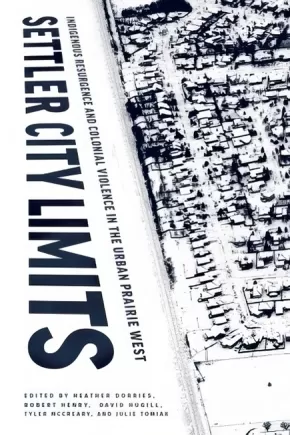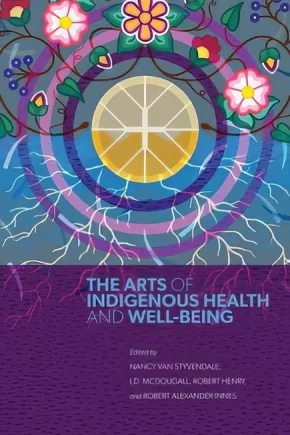Robert Henry
Robert Henry is an Assistant Professor in the Department of Sociology at the University of Calgary.
Books (2)
Synopsis:
While cities like Winnipeg, Minneapolis, Saskatoon, Rapid City, Edmonton, Missoula, Regina, and Tulsa are places where Indigenous marginalization has been most acute, they have also long been sites of Indigenous placemaking and resistance to settler colonialism.
Although such cities have been denigrated as “ordinary” or banal in the broader urban literature, they are exceptional sites to study Indigenous resurgence. The urban centres of the continental plains have featured Indigenous housing and food co-operatives, social service agencies, and schools. The American Indian Movement initially developed in Minneapolis in 1968, and Idle No More emerged in Saskatoon in 2013.
The editors and authors of Settler City Limits, both Indigenous and settler, address urban struggles involving Anishinaabek, Cree, Creek, Dakota, Flathead, Lakota, and Métis peoples. Collectively, these studies showcase how Indigenous people in the city resist ongoing processes of colonial dispossession and create spaces for themselves and their families.
Working at intersections of Indigenous studies, settler colonial studies, urban studies, geography, and sociology, this book examines how the historical and political conditions of settler colonialism have shaped urban development in the Canadian Prairies and American Plains. Settler City Limits frames cities as Indigenous spaces and places, both in terms of the historical geographies of the regions in which they are embedded, and with respect to ongoing struggles for land, life, and self-determination.
Contributors: Chris Andersen, Nicholas Brown, Elizabeth Comack, Heather Dorries, Nick Estes, Adam Gaudry, Robert Henry, David Hugill, Sharmeen Khan, Corey Laberge, Brenda Macdougall, Tyler McCreary, Lindsey Claire Smith, Michelle Stewart, Zoe Todd, Julie Tomiak
Reviews
“Settler City Limits breaks ground, shattering the powerful authoritative structures of racism that have dichotomized rural and urban space, and Indigenous peoples’ relation to these as a central force sustaining and fortifying settler colonialism.” – Heather A. Howard-Bobiwash, Associate Professor of Anthropology, Michigan State University, and Affiliated Faculty Centre for Indigenous Studies, University of Toronto
Educator Information
Table of Contents
Introduction
Part 1 Land and Politics
Part 2 Contestation, Resistance, Solidarities
Part 3 Policing and Social Control
Part 4 Life and Death
Additional Information
368 pages | 6.00" x 9.00"
Authenticity Note: Contains contributions from both Indigenous peoples and settlers.
Synopsis:
Drawing attention to the ways in which creative practices are essential to the health, well-being, and healing of Indigenous peoples, The Arts of Indigenous Health and Well-Being addresses the effects of artistic endeavour on the “good life”, or mino-pimatisiwin in Cree, which can be described as the balanced interconnection of physical, emotional, spiritual, and mental well-being. In this interdisciplinary collection, Indigenous knowledges inform an approach to health as a wider set of relations that are central to well-being, wherein artistic expression furthers cultural continuity and resilience, community connection, and kinship to push back against forces of fracture and disruption imposed by colonialism.
The need for healing—not only individuals but health systems and practices—is clear, especially as the trauma of colonialism is continually revealed and perpetuated within health systems. The field of Indigenous health has recently begun to recognize the fundamental connection between creative expression and well-being. This book brings together scholarship by humanities scholars, social scientists, artists, and those holding experiential knowledge from across Turtle Island to add urgently needed perspectives to this conversation. Contributors embrace a diverse range of research methods, including community-engaged scholarship with Indigenous youth, artists, Elders, and language keepers.
The Arts of Indigenous Health and Well-Being demonstrates the healing possibilities of Indigenous works of art, literature, film, and music from a diversity of Indigenous peoples and arts traditions. This book will resonate with health practitioners, community members, and any who recognize the power of art as a window, an entryway to access a healthy and good life.
Reviews
“There is a genuinely beautiful life-force at work in this text: it’s artful and creative, readable and forceful. The objectives and scholarship throughout The Arts of Indigenous Health and Wellbeing are clear, grounded, rigorous and likely to make important contributions to knowledge and conversations about Indigenous health and the humanities in times and space of contemporary coloniality.” — Sarah de Leeuw
"The unique content of The Arts of Indigenous Health and Wellbeing may be useful for communities to heal, and to preserve cultural and traditional knowledge that can be passed down in the written form. The content can spark dialogue and learning by being discussed and used by families, generations, health providers/healers and a wide array of learners.”— Margot Latimer
Educator Information
Table of Contents
Ch 1: What This Pouch Holds
Ch 2: Baskets, Birchbark Scrolls, and Maps of Land: Indigenous Making Practices as Oral Historiography
Ch 3: For Kaydence and her Cousins: Health and Happiness in Cultural Legacies and Contemporary Contexts
Ch 4: Stories and Staying Power: Art-Making as (Re)Source of Cultural Resilience and Well-Being for Panniqtumiut
Ch 5: Healthy Connections: Facilitators’ Perceptions of Programming Linking Arts and Wellness with Indigenous Youth
Ch 6: Narrating Relations: Genetic Ancestry Testing and Alternarratives of Queer Kinship
Ch 7: The Doubleness of Sound in Canada’s Indian Residential Schools
Ch 8 Kissed by Lightning: Mediating Haudenosaunee Traditional Teachings through Film
Ch 9: Minobimaadiziwinke (Creating a Good Life): Native Bodies Healing
Ch 10: Body Counts: War, Pesticides and Queer Spirituality in Cherríe Moraga’s Heroes and Saints
Ch 11: “The Song of the Starved Soul”
Ch 12 Sakihiwawin: Land’s Overflow into the space-tial “Otherwise”
Additional Information
240 pages | 6.00" x 9.00" | Paperback








